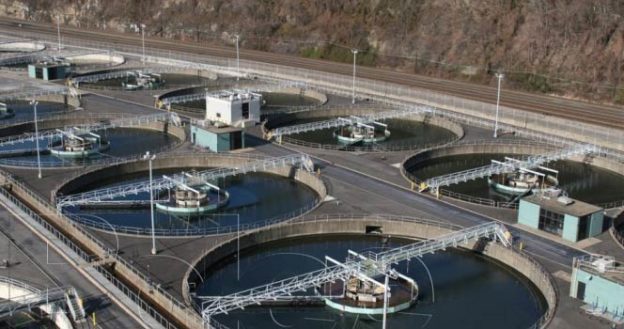High-rise buildings get a conditional nod
The Sindh government has designed a Rs.400 billion worth program for provision of quality drinking water and to treat sewerage water before shoring up to the water bodies in the province.
The plan is an outcome of the pressure that came from the apex court hearing the petition on quality of drinking water in the province and also mixing of untreated hazardous water to the canal system and the sea. Apparently a robust program, which some may appreciate, is being termed as unrealistic even in the circles and some experts allege it is yet another effort to secure commission by officers who already ruined hundreds of water treatment schemes in the province.
A government officer who does not want to be named said there was no need to spend such a hefty sum of Rs.400 billion for that purpose as hundreds of schemes can be revived under operation and maintenance program—a head which has already sanctioned sums for spending. For instance, he revealed as many as 953 schemes stood closed in Public Health Engineering (PHE) Department whose total water related schemes numbered at 2300. These schemes does not include the ones in Karachi and Hyderabad.
Ironically, these 953 schemes all have infrastructure and other requisites available but remain non-functional due to bad governance. These schemes can easily be made functional rather than designing new ones, he claimed. Sindh has around 33 filter plants and of them 25 are closed. They can be revived rather than installing news ones.
An officer of a task force on water said there were 750 points all over the province where untreated and sewage water was being discharged into water bodies in Sindh. Of them, 300 points can be cured with Rs.700-800 million. This will address over 30 percent of the issue, he claims. If the government rehabilitates 4 major treatment plants which can be made functional with existing resources can resolve 50 percent of the issue, Shahab Usto who is the prime petitioner in the case says.
Looking at the hearings in the apex court, one can realize how this issue has transformed into one of major national issues. Never before this time has water quality been so ingrained into public consciousness in Pakistan especially in Sindh. Thus, this is for the very first time in the history that the Supreme Court of Pakistan has heard any issue on Sunday—the public holiday in Pakistan.
Usto said it is for the first time that all stakeholders are involved in the issue which encourages him that the issue would be resolved to a great extent.
High rise buildings Allowing construction of maximum six-storied buildings, the Supreme Court has strictly restrained the builders from raising more than six floors in any part of Karachi. The apex court bench, headed by the CJP and comprising Justice Faisal Arab and Justice Sajjad Ali Shah was hearing a miscellaneous application of Association of Builders and Developers (ABAD), requesting it to lift the ban on construction of high-rise buildings.
The apex court, while hearing the case pertaining to provision of pure drinking water and sanitation issues, in March 2017 had imposed a ban on construction of multi-storied building until the issues are resolved. ABAD in its application pleaded the court to lift its ban, maintaining that allotees of new projects were suffering as they could not be handed over possession of their flats or floors booked earlier. The lawyer, representing the builders’ association argued that there was no shortage of water in the city as the issue was only fair distribution.








